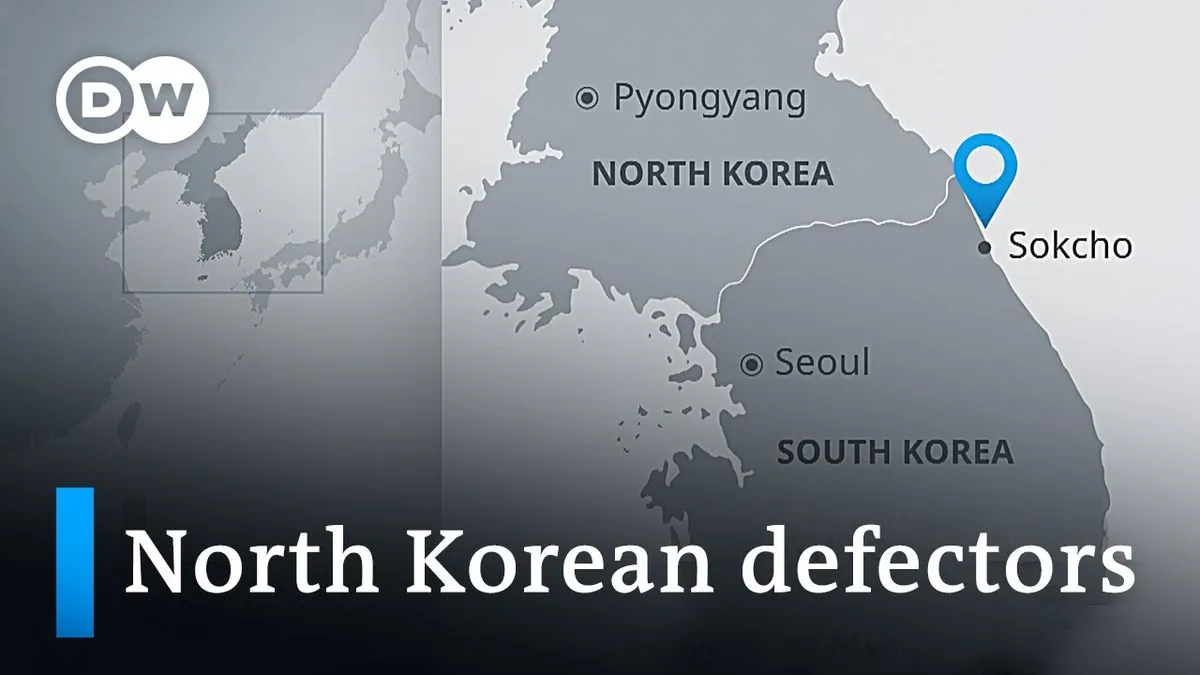North Korean Defector Crosses Maritime Border to South Korea
A North Korean resident successfully defected to South Korea via the western maritime border. South Korean authorities are investigating the incident, which represents an uncommon route for defection.

On August 8, 2024, a North Korean resident successfully defected to South Korea by crossing the western maritime border, as reported by the Yonhap news agency. This event marks a rare instance of defection via sea route, contrasting with the more common land-based escapes through China and Southeast Asia.
The defector traversed the Northern Limit Line (NLL) in the Yellow Sea, which serves as the de facto inter-Korean sea boundary. Established in 1953 following the Korean Armistice Agreement, the NLL remains a point of contention, with North Korea disputing its legitimacy and claiming a boundary further south.

According to military sources, two individuals initially attempted the crossing, but only one successfully reached a South Korean border island on foot during low tide. The fate of the second person remains unclear, with reports suggesting they either failed to cross or went missing.
The South Korean Joint Chiefs of Staff confirmed that they have transferred custody of the suspected North Korean national to relevant authorities. Defence Minister Shin Won-sik stated that the military monitored the individual's arrival and ensured their safe passage. However, details about the crossing method and the defector's intentions are still under investigation.
This maritime defection is part of a recent trend, possibly influenced by tighter land-border controls imposed by Pyongyang during the COVID-19 outbreak. In October 2023, four North Koreans defected via the eastern maritime border, while in May 2023, nine individuals crossed the western sea boundary on a fishing boat.
Since the Korean War armistice in 1953, over 33,000 North Koreans have defected to South Korea. Interestingly, women constitute the majority of defectors, accounting for over 70% since 2006. These individuals often face significant challenges integrating into South Korean society, despite receiving financial and social support from the government.
The journey to freedom for most defectors typically involves a perilous route through China and Southeast Asia, often taking months or even years. However, the COVID-19 pandemic led to a significant decrease in defections due to North Korea's implementation of strict border controls, including shoot-to-kill orders.
It's worth noting that South Korea's Constitution considers all of Korea as its territory, automatically granting citizenship to North Korean defectors upon arrival. Some defectors have become influential public figures in South Korea, sharing their experiences and providing valuable insights into life in the North.
While defections continue to occur, they also present complex diplomatic and security challenges. North Korea has occasionally sent agents disguised as defectors to gather intelligence, adding another layer of complexity to the situation. Despite the risks, many defectors maintain contact with family members in North Korea through brokers and smuggled cell phones, highlighting the ongoing human connections across the divided peninsula.
As investigations into this latest defection continue, it serves as a reminder of the ongoing tensions on the Korean Peninsula and the desperate measures some individuals are willing to take in search of a better life.


































